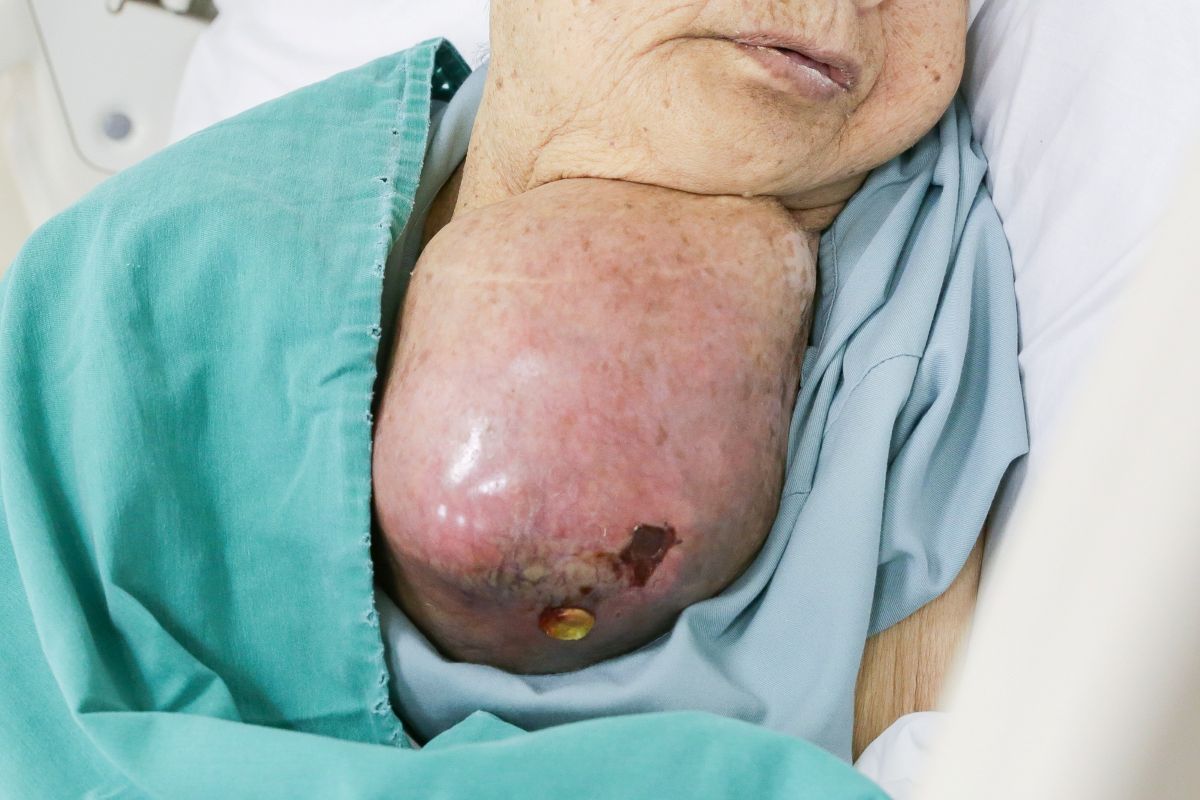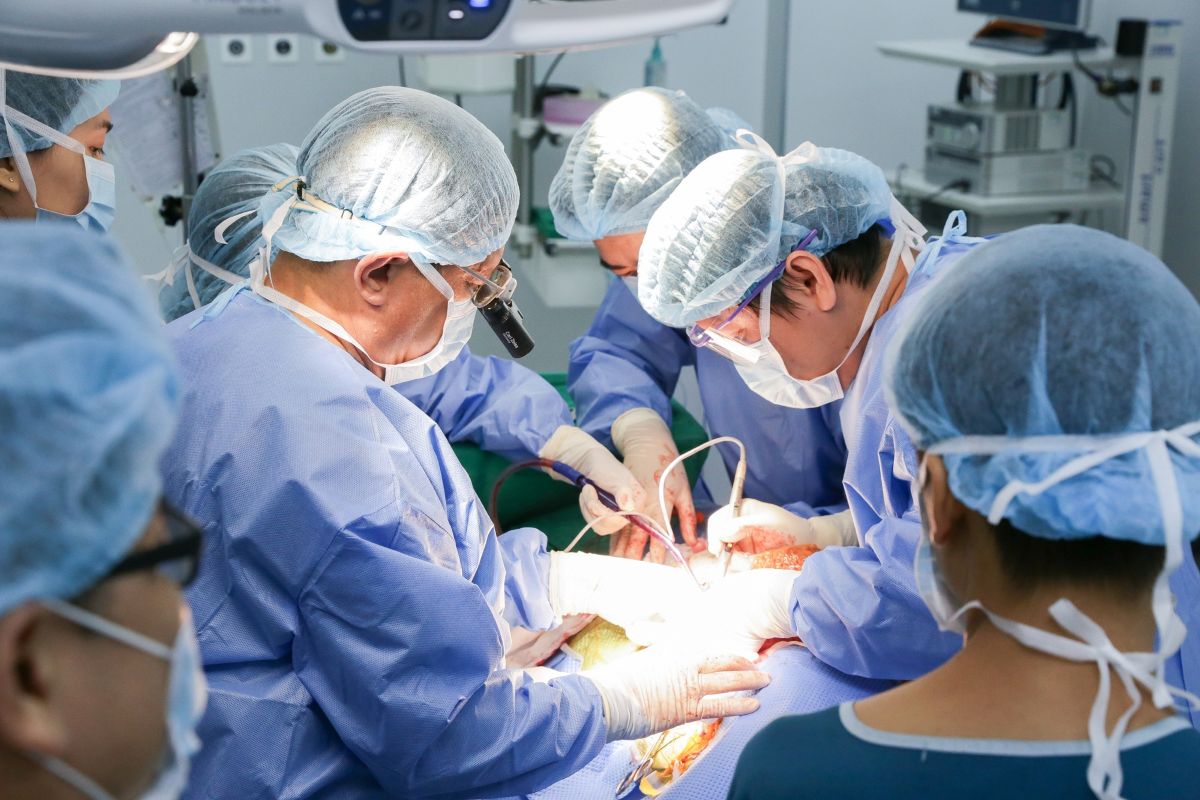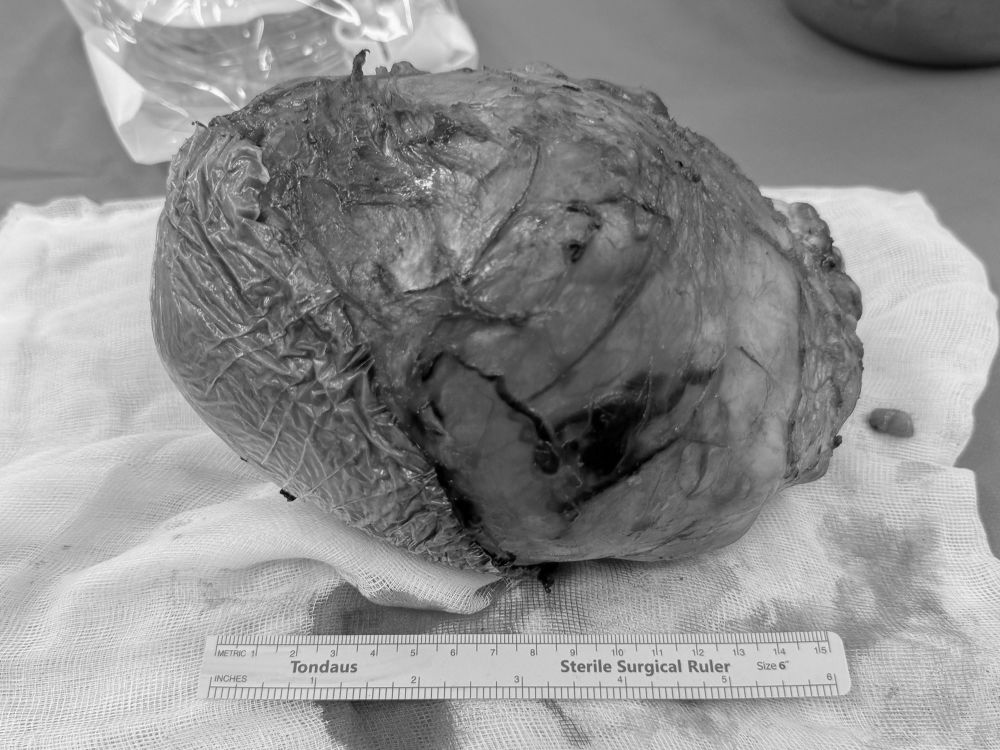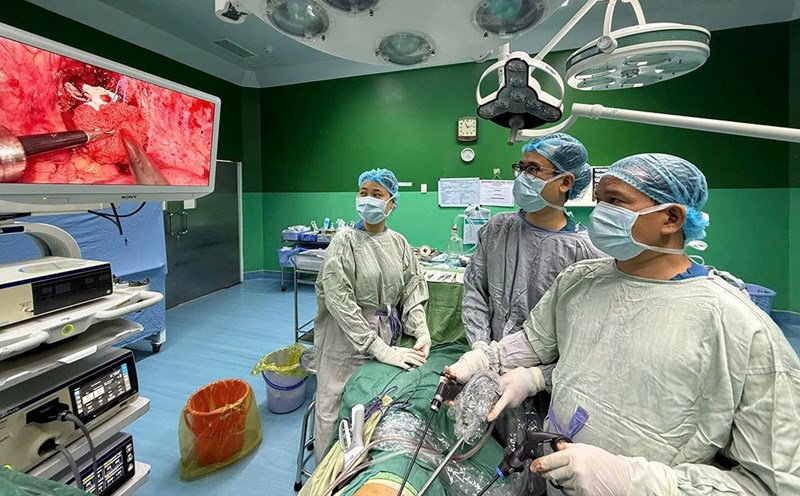Last chance after being refused treatment in many places
Before coming to Vinmec Nha Trang Hospital, Ms. L.T.T. (81 years old, residing in Khanh Hoa) has undergone 3 surgeries for a neck tumor. However, after only a few years, the tumor recurred, even increasing in size abnormally quickly. She could hardly lie on her back or sleep at rest due to difficulty breathing, choking, and prolonged fatigue. Returning to old hospitals, she was refused surgery because the tumor was too large and had many organs, while she still had complex underlying diseases, including high blood pressure, type 2 diabetes and coronary artery stenosis.
On November 3, she was taken to Vinmec Nha Trang Hospital in a state of a giant neck-brist tumor, compression of the tracheal and vocational vein, accompanied by a now-dead, pustular infection. More worryingly, she has many serious underlying diseases including high blood pressure, type 2 diabetes and coronary artery stenosis.

After a comprehensive examination and assessment, the doctors determined that this was a very complicated surgery. However, if not intervened early, the patient could die from respiratory failure, severe infection or large blood vessel compression.
"The tumor is huge in size, tightly attached and encroaches on the neck and chest area, so controlling the airways and anesthetizing is extremely difficult. We have to make a careful plan to ensure safety during anesthesia and be able to completely remove the tumor, minimizing the risk of damage to the nerves and airways. Just a small mistake, the patient's life could be threatened right at the operating table, the hospital said. BSCKII Tran Hoai An - Director of the Cardiovascular Center, Head of the Department of Cardiovascular Surgery - Thoracic Surgery - Organ Transplantation, Vinmec Nha Trang Hospital, said.
Coordinate interdisciplinary, bring specialized techniques to the locality
On November 4, under the direction of MSc. Dr. Phan Quoc Dung, Director of the Hospital, the patient received interdisciplinary consultations including Cardiovascular - Thoracic Surgery, Anesthesia and Resuscitation, Intensive Care, Cardiovascular, ENT, and Gastroenterology. The team agreed to choose surgery to remove all the fat tissue in the neck - chest area, and carefully prepare for the worst situation - patients with cardiac arrest or respiratory failure during anesthesia.

On November 5, the team led by Dr. An performed surgery on the patient. To ensure absolute safety, anesthesiologists used the technique of placing the endotracheal gland with camera support. This is an advanced technology that allows clear observation of the structure of the tracheal pass and the conductate, limiting the risks in the operation of placement of the tracheal tube.
After a successful anesthesia, the team meticulously removed the tumor, avoiding damage to important structures such as the tracheal, large blood vessels and the reverse convective nerve - the voice control nerve. Because the tumor was deep and had an necrotic area, the doctor had to treat the infected tissue, stop the bleeding meticulously, thereby removing the entire tumor from the body.

The tumor block was removed and measured about 20x20x30 cm and weighed more than 1.7 kg (even watermelon fruit). After the cup was peeled off, the patient's neck and chest left a large gap and necrosal skin. Doctors continue to perform the technique of sliding the skin to cover the area to ensure immediately wound, reduce scars and restore aesthetics in the neck area.
The surgery lasted more than 3 hours and went smoothly. After surgery, the patient was transferred to the Intensive Care Unit for close monitoring. The patient no longer had difficulty breathing or swallowing, started snacking and exercising early on the second day after surgery. At the same time, thanks to controlling blood sugar, blood pressure and caring for surgical wounds according to international standard procedures, she recovered quickly, the wound was dry, without complications of infection or bleeding.
What makes us happiest is that the patient recovered quickly, was excited, could talk, and eat normally after many years of pain and inferiority complex due to the tumor, Dr. An shared.
According to the Ministry of Information. BSCKII Tran Hoai An, this is the first giant cervical - thoracic tumor excretion surgery, recurring many times, with a high risk of death to be successfully performed at the hospital. This result clearly demonstrates the deep professional capacity and the ability to coordinate smoothly between specialties at the hospital.
The successful surgery not only helped patients regain their health and quality of life but also affirmed Vinmec's correct direction in developing specialized capacity at facilities outside of Hanoi and Ho Chi Minh City.
Not only in large centers, we are gradually building specialized treatment capacity right in the locality, helping people in the Central - Central Highlands access advanced medical techniques without having to travel far, said Dr. An.











